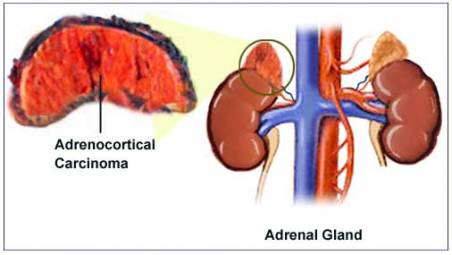
The treatment includes replacing the lack of hormones with their synthetic versions. The symptoms of Addison’s disease may include extreme fatigue, weight loss, loss of appetite, areas of darkened skin, low blood pressure, even fainting, salt craving, low blood sugar, nausea, diarrhoea, or vomiting, among others. Symptoms and how Addison’s disease is treated Obesity, muscle weakness, severe fatigue and high blood pressure are just a few of the symptoms of a functioning adrenal adenoma (benign adrenal gland tumor).

He highlighted whenever there’s a deficiency of these hormones it can give rise to multiple cardiovascular problems including “low blood pressure, irregular heartbeats, and heart failure." Nishith Chandra, who is reported to be the Director Interventional Cardiologist at the Fortis Escorts Heart Institute, stated how cortisol and aldosterone play key roles in the regulation of blood pressure and heart function. Immune system symptoms: Frequent sickness or infections. It also regulates too little Aldosterone required to balance the sodium and potassium in the blood, to control the amount of fluid in the kidneys.Ĭan Addison’s disease result in a heart attack?ĭuring an interaction with the Hindustan Times, Dr. Signs and symptoms that are relevant to the bodily processes your adrenal gland hormones affect include: Metabolism symptoms: Unexplained weight gain or weight loss, fatigue, frequent high blood sugar or low blood sugar. Adrenal glands are triangle-shaped and located on the top of the kidney and the chronic condition results in little production of cortisol, a hormone that responds to stress, helps in maintaining blood pressure and regulates proper heart condition and immune system.


Addison’s disease is a rare illness when the body becomes unable to produce enough hormones, also known as adrenal insufficiency.


 0 kommentar(er)
0 kommentar(er)
